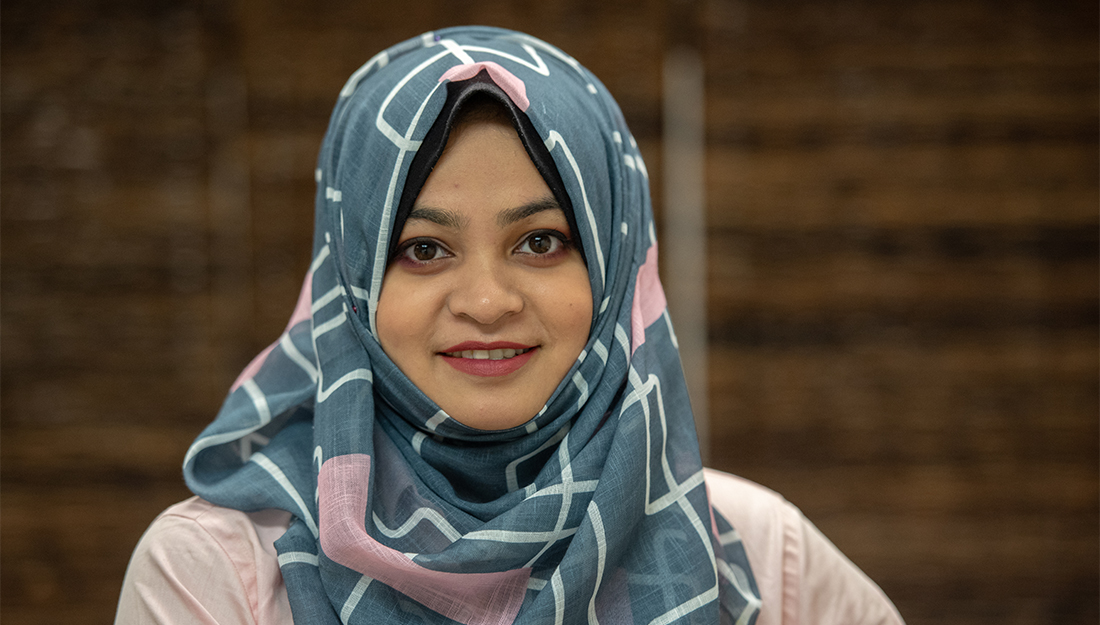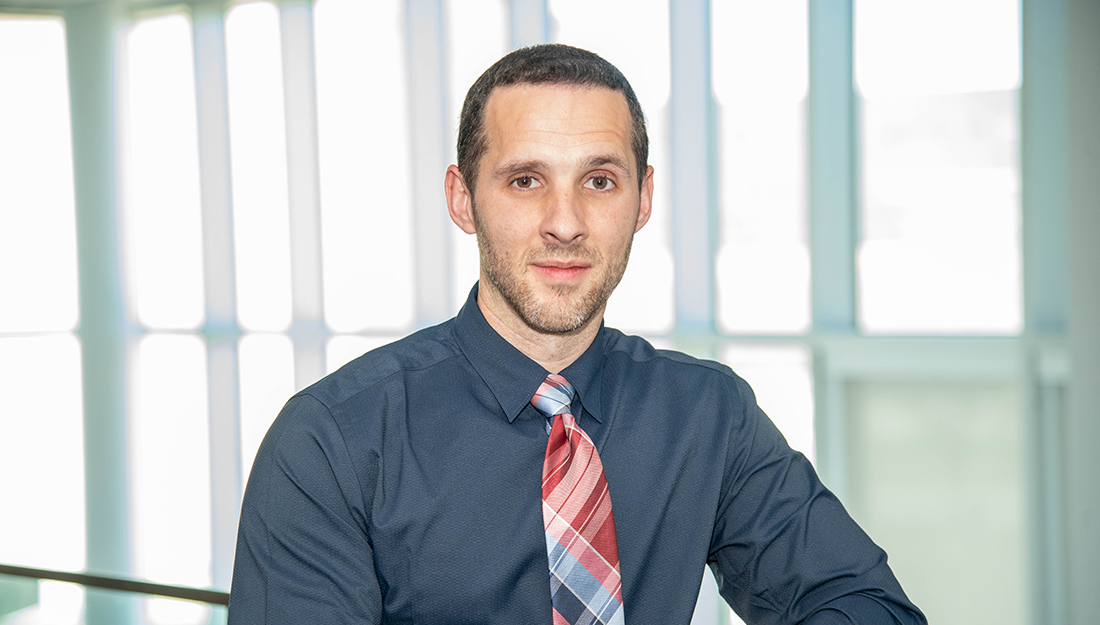Restoring confidence in vaccinations

As the first student from the Department of Health Promotion and Community Health Sciences at the Texas A&M School of Public Health to receive a fellowship from the Hagler Institute for Advanced Study, doctoral student Tasmiah Nuzhath combines her experience in facilitating interventions during a refugee crisis with her passion for improving access to health care by conducting research on measles vaccines.
Nuzhath recalls growing up in Bangladesh where an overwhelming majority of people do not have access to proper health care. There, she observed the social influences that impede health care delivery to the population.
“The lack of education and awareness concerning maternal and child health care that result in deaths that are preventable is what encouraged me to pursue a career in public health,” Nuzhath said. “Not only does this population lack the resources to care for themselves, they also lack basic knowledge of safe reproductive health practices.”
After graduating with a master’s degree in population sciences, Nuzhath worked for the United Nations Population Fund on improving accessibility to maternal health services in Bangladesh, especially in the wake of the Rohingya refugee crisis. Nuzhath collected and analyzed data for United Nations intervention projects, eventually publishing her findings in the Journal of Global Health about the health risks of the Rohingya population.
“My article was a call for global attention to this refugee crisis,” Nuzhath said. “It is important to ask public health leaders what can be done to improve the health of this vulnerable population. My research during this time helped me realize the potential of translating the knowledge and skills of public health into effective interventions that can save lives on a large scale.”
Nuzhath’s work with the United Nations encouraged her to seek doctoral programs that would enhance her leadership role in public health. Her implementation of interventions and heart to improve the health of people in Bangladesh immediately attracted faculty from the School of Public Health.
Brian Colwell, PhD, professor at the School of Public Health and director of the Program on Global Health Research, encouraged Nuzhath to apply for the Hagler Fellowship, an award provided by the Hagler Institute for Advanced Study granting students a full stipend to cover tuition, living expenses and research in their field.
“Tasmiah is a true delight. She asks perceptive questions, she looks at problems differently and she’s among the hardest workers I’ve ever known. I’m so thankful to have the honor to work with her,” Colwell said.
Students who receive the fellowship work with internationally prominent faculty fellows to conduct research on a global scale. Nuzhath is currently working with faculty fellow Peter Hotez, MD, PhD, an internationally-recognized expert on tropical disease and vaccinations.
“I am developing a global vaccine risk index for measles that will help determine the factors contributing to vaccination coverage,” Nuzhath said. “This will be a useful public health tool because not only will it predict current and future outbreaks of measles, but it will also identify the causes contributing to measles outbreaks and low vaccination coverage.”
Nuzhath’s team is using climate change indexes, war and conflict indexes, the number of displaced populations, urbanization, and vaccination confidence as part of the vaccine risk index. Currently, the index is complete for 131 countries.
“Vaccine hesitancy has now emerged as a major force driving down vaccine coverage. However, this alone may not explain measles outbreaks in areas of war and conflict, or from political collapse; or due to extreme poverty and overall failures in health systems. There is an opportunity to look at declines in vaccine coverage and the return of measles more broadly by including these additional determinants. It is important for us to develop this index so we can be ready to intervene in high risk areas and help save countless children’s lives,” Nuzhath said.
Although Nuzhath’s research for the vaccine index has just begun, she has plans to continue research on improving the lives of women and children by finishing her doctorate in health promotion and community health sciences and pursuing a career in academia.
“From the beginning, I’ve always had a passion for improving the lives of women and children,” Nuzhath said. “The School of Public Health has allowed me to follow this calling through the mentorship of the faculty and the support of other students who are also passionate about improving the lives of others. I want to build upon this research because there are so many lives at stake.”
Nuzhath’s involvement with the School of Public Health’s faculty, staff and students “has made Texas A&M feel like home,” she reflected.
“I appreciate the diversity of Texas A&M’s campus and the opportunity to work alongside internationally-known researchers,” Nuzhath said. “Although I am 8,000 miles away from home, I would love to make Texas A&M my new home and continue to work alongside the faculty here. The loyalty and respect that flow through the School of Public Health with endless opportunities for research arm students with the knowledge and skills they need to change the world.”
Media contact: media@tamu.edu


